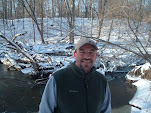"Labels can only confine. Aspire to be undefinable."
--Colin Wright
Interestingly, I have found in my work as a counselor that labeling often is a distracting thing. For the client and for the therapist. A lot of time can be spent unpacking and processing internal and external labels that are carried around. Often times the labels people are shouldering seem like a necessary part of their lives but at the same time restrict and limit aspirations, dreams, and growth.
Though often a necessary part of our lives, and just by using language like we must, we are by definition, constantly, consistently, and comprehensively labeling things.
Label: I am sitting at my desk writing this blog post.
Label: I am drinking coffee.
Several labels for me: I am a sixty-two-year-old heterosexual white male (at the time of this writing).
Many that I work with in counseling therapy are bothered and negatively impacted by labels, in the sense that the rub seems to be that there is often too much meaning given to how they get labeled. I see people not only as people of color or not, the first-born son, youngest child, mean girl, slow-learner, tall, angry, moody, helpful, or agoraphobic, but thousands of labels at once. How can I put too much importance on one, or a shortlist of them?
Labels can feel like material possessions, and for many people that struggle with mental health, are a very heavy, cumbersome burden that they are desiring to be rid of. Labels are often fables, lies, and myths that have been told to us or we have adopted as true beliefs about ourselves. They can become boundaries and obstacles that limit what we strive for or what can safely be crossed. People often understand and affirm that they are necessary, but may come to recognize and believe with some deep work and self-reflection that they don’t need to give them as much meaning as some people ask them to put on them.
And there is a difference in the concept of labels for expressing "meaning" and for "identification" purposes. Imagine 10 cans of different soups lined up on a shelf with the labels all removed and you want chicken noodle. Identification would be difficult and you may have to settle for tomato or vegetable beef soup in this game of canned goods roulette.
Martina Navratilova said that "Labels are for filing. Labels are for clothing. Labels are not for people." Labels are a good thing for soup cans.
As for labels in my life, I quietly use them in silence as the start of the process of better understanding someone or something. But I always fall back on how my whole life I looked at the world through Dr. King's message to treat people not "by the color of their skin but by the content of their character."
I updated my internal message to "I engage with the common humanity of humankind not through labeling, but by deeply exploring the content of a person's heart, discovering who they are."







